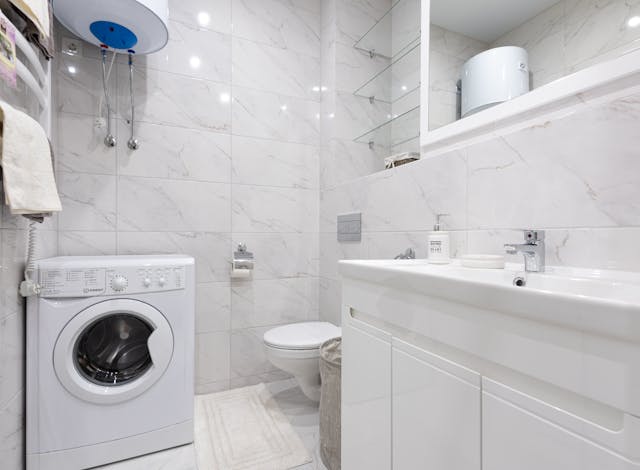Tips to Enhance Your Home’s Water Heater Efficiency
Key Takeaways:
- Discover practical ways to boost the efficiency of your home’s water heater.
- Making little adjustments might prolong the life of your unit and save energy expenses.
- Navigate the landscape of water heaters with informed decisions based on sound practices.
Contents
Introduction
The foundation of a comfortable home is a water heater, which supplies hot water for everyday tasks like cooking, cleaning, and bathing. When these essential appliances operate efficiently, they enhance comfort, substantially curtail energy expenditures, and optimize environmental impact. In today’s energy-conscious world, understanding how to maintain and improve the efficiency of your water heaters is pivotal. Homeowners may extend the life of their water heating systems and save a lot of money by implementing various optimization techniques.
Understanding Water Heater Efficiency
Water heater efficiency is commonly measured by the Energy Factor (EF). Based on the unit’s capacity to transform energy into warm water while accounting for standby losses, this rating method evaluates the unit’s total efficiency. Higher EF ratings indicate more significant efficiency. For example, tankless and solar water heaters typically boast higher EF ratings than traditional tank models. While the initial cost of high-efficiency units may be steeper, their ability to minimize energy wastage can deliver considerable savings over time, making them a savvy investment for forward-thinking homeowners.
Choosing the Right Settings
Setting your water heater’s thermostat to an optimal level is a straightforward yet effective method for enhancing efficiency. Setting the temperature at 120°F (49°C), which provides a sensible compromise between hot water availability and energy conservation, is advised by the U.S. Department of Energy. Lower temperatures help avoid scalding risk while ensuring that the heater does not consume excessive energy while trying to maintain unnecessarily high temperatures. A simple adjustment like this reduces energy bills and supports the appliance’s longevity by lessening temperature-related stress.
Simple Maintenance Tasks
Regular maintenance is necessary for your water heater to function correctly and last long. Draining the tank once a year is a crucial plumbing services maintenance procedure that removes sediment and mineral buildup, which, over time, can reduce heating capacity and efficiency. As detailed in thorough routine maintenance instructions, a proactive approach to maintenance enables you to spot any problems early on and preserve heater performance.
Insulating the Tank for Better Performance
Insulating the pipes and tank of your water heater is a tried-and-true way to increase efficiency and minimize energy loss. Tank insulation cuts down on standby heat loss, allowing the water heater to maintain hot water temperatures with less energy. It is especially beneficial in cooler climates where heat loss can be significant. Utilize thermal blankets and pipe wraps that are designed explicitly for insulative purposes. A guided strategy for insulation can be found in educational resources detailing home insulation and energy-saving tips, making it easier to bring your water heater to top performance retroactively.
Exploring Alternative Water Heating Solutions
Conventional water heaters are one of many options for maximizing energy efficiency. Tankless water heaters are known for heating water on demand, eliminating the energy wasted in maintaining a tank full of hot water. Meanwhile, solar water heaters capitalize on renewable energy, offering an eco-friendly and cost-effective alternative. These systems can significantly reduce your home’s energy footprint while promising long-term economic benefits. Choosing the right alternative depends on your specific energy goals and household requirements.
Common Mistakes to Avoid
Many homeowners inadvertently decrease the efficiency of their water heaters by making common mistakes, such as ignoring small leaks or frequently setting the thermostat to maximum temperatures. Over time, these seemingly minor errors can lead to increased energy consumption and eventually damage the unit. Avoiding such pitfalls is crucial for maintaining the health and efficiency of your water heater. Be vigilant and proactive, regularly check for signs of wear or distress, and take corrective actions promptly.
Key Considerations for New Purchases
When it comes time to purchase a new water heater, several factors need careful consideration to ensure you select the best model for your needs. Please pay close attention to the unit’s Energy Factor rating, which indicates its efficiency, and ensure the size is appropriate for your household’s hot water demands. Even though high-efficiency versions can cost more upfront, they provide significant performance and cost savings over time, making them an excellent investment for any home that uses energy.
Conclusion
Taking deliberate actions to boost your water heater’s efficiency is a rewarding practice that reduces energy bills and increases appliance longevity. By modifying your settings, performing routine maintenance, and looking into alternate water heating methods, you may successfully lessen your environmental impact while still enjoying the conveniences of reliable hot water. When embraced consistently, these steps contribute to your wallet’s health and the broader energy conservation and sustainability efforts—a positive outcome that echoes beyond the home.

